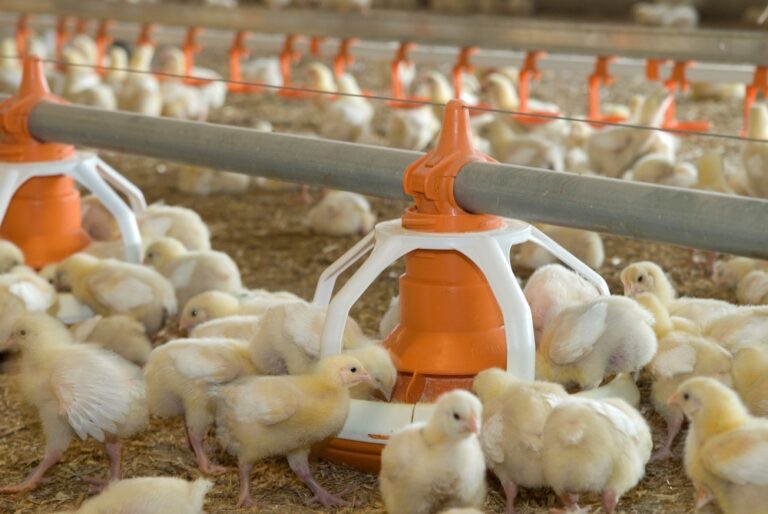Broiler breeders fed twice a day display less foraging and pecking behaviour and more eating and resting behaviour. Furthermore, some birds even produced more eggs, according to recent research carried out at Wageningen University & Research.
On average, broiler breeders are becoming productive at ever increasing ages. Keeping broiler breeders longer than 60 weeks is sustainable and logical if eggshell quality can be maintained. That is why researchers from Wageningen Livestock Research set out to investigate whether twice-daily feeding has an impact on the quality of the eggshell. As it turns out, this does have positive effects, but not directly on the eggshell.
Broiler breeders are fed early in the morning. In the study, a group of broiler breeders therefore received regular feed at a single set time. Another group was fed twice a day with regular feed and another group was fed twice a day with special morning and afternoon feed (split-feeding). Researcher Rick van Emous said: “The assumption is that by providing one portion of morning food, the nutrients may not be available at the right time of day to meet the needs of the broiler breeders. This is especially true for calcium, which is essential for eggshell formation. The formation of the eggshell starts in the afternoon or early evening and takes about 20 hours. So multiple hours after the feed has been provided.”
This research demonstrates that animals that received split-feeding laid more eggs. Furthermore, twice-daily feeding and split-feeding had negligible effects on hatchery quality. Van Emous said: “However, we did observe a different behavioural pattern between the various groups of animals during the day. Both groups of twice-daily fed animals were much calmer. They forage and peck less. Those are clear signs of improved animal welfare.”
However, this does not solve the original problem of weaker eggshells produced by older animals. “Breeders normally receive extra calcium and grit from 40 weeks on, to support eggshell formation. We have now used 50-week-old animals and conducted this feed research over 10 weeks. In the follow-up study, I would like to monitor a longer period of time to see what benefits split-feeding and twice-daily feeding can introduce for reproduction, hatchery quality and behaviour,” he added.
As far as Van Emous is concerned it would be good in any case to feed breeders twice a day: “Even the young breeders. It’s better for them physiologically and in terms of digestion. As well as for their behaviour and well-being. In the long run, it would be nice to have breeders with better welfare, whose lives we can extend up to 65 weeks.”
This study was carried out by Wageningen Livestock Research on behalf of and financed by the Consortium Breeders In Technology and the Ministry of Agriculture, Nature and Food Quality.


